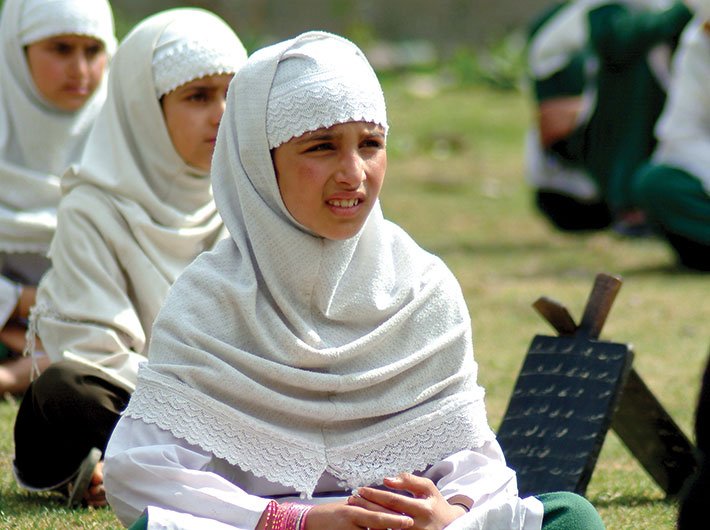The central government has requested the law commission of India to study the feasibility of having a uniform civil code governing marriage, divorce and inheritance for people of all religions living in the country. While some political groups and Muslim religious leaders have opposed interference with personal laws as invasion into religious freedom of minorities, the real hurdle in way of replacing personal laws with a common civil code may be lack of consensus and not the fundamental right to practise and profess one’s religion.
The constitution-makers did not find any conflict between a uniform civil code and the fundamental right to religion but decided to leave the task of introducing a common civil code (vide Article 44) to future parliament taking into account the wishes of the people. The Narendra Modi government’s decision to refer the matter to the law commission is probably the first serious attempt towards exploring the possibility of introducing a uniform civil code in terms of the mandate of Article 44 of the constitution.
If the law commission is able to draw a draft civil code after considering the views of stakeholders or even makes an attempt to do so, the unending debate over uniform civil code would move beyond the freedom of religion hurdle. A serious attempt at exploring a consensus has not been possible all these years in the absence of a blueprint of a model civil code.
The directive on a uniform civil code was opposed by some members of the constituent assembly who contended that the fundamental right to freedom of religion protected Muslim personal law which was immutable. The argument was rejected by the constituent assembly which was of the view that the fundamental right to freedom of religion did not come in way of a uniform civil code. “We want to divorce religion from personal law,” said KM Munshi, a freedom movement leader, in the assembly while pointing out that many developed countries had a common civil code for all communities.
Stressing that it may be wrong to suggest that personal law was invariably linked to religion, Dr BR Ambedkar pointed out that up to 1935 the North-West Frontier Province was not subject to the Shariat law but it followed the Hindu law in the matter of succession and in other matters. Further, till 1937 in various parts, such as the United Provinces, the Central Provinces and Bombay, the Muslims to a large extent were governed by the Hindu law in the matter of succession. In order to bring them on the plane of uniformity with regard to the other Muslims who observed the Shariat law, the legislature had to intervene in 1937 to pass an enactment applying the Shariat law to the rest of India.
Drawing a parallel with a uniform civil code which is aimed at having a common civil law throughout the country, Dr Ambedkar pointed out during the debate in 1948 that Shariat law, which was not applicable in certain parts, was made applicable by enacting a law 10 years ago.
In the decades following independence, courts have held in a number of judgments that marriage, divorce, inheritance, etc. were secular activities unconnected to religion. But the clear pronouncements by constitutional courts have not been factored in by those opposing a uniform civil code as an inroad into the freedom of religion. The rulings holding that the constitution allowed the legislature to enact laws to override personal laws in the interest of social welfare and reform have also failed to change the course of the debate which is centred around the freedom of religion.
Upholding a 1946 Bombay law against bigamy among Hindus, which was not barred by the Hindu personal law at the time, the high court in the Narasu Mali case held in 1952 that the right of the state to legislate on questions relating to marriage cannot be disputed.
“A sharp distinction must be drawn between religious faith and belief and religious practices. What the state protects is religious faith and belief. If religious practices run counter to public order, morality or health or a policy of social welfare upon which the state has embarked, then the religious practices must give way before the good of the people of the state as a whole,” the high court observed.
In the Hanif Quareshi case, the supreme court held in 1959 that the freedom of religion only protected practices which were integral to any religion. Upholding a Bihar law placing a total ban on cow slaughter, the court held that it did not appear to be obligatory that a person must sacrifice a cow. “As it was not proved that the sacrifice of a cow on a particular day (Eid) was an obligatory overt act for a Mussalman for the performance of his religious beliefs and ideas, it could not be held that a total ban on the slaughter of cows ran counter to Article 25 of the constitution,” the court said.
In the Shah Bano case, the supreme court in 1985 held that the statutory law prevailed over the personal law of the parties, in cases where they were in conflict. In a clear pronouncement, the supreme court held in the Sarla Mudgal case in 1995 that “the personal law operates under the authority of the legislation and not under the religion and, therefore, the personal law can always be superseded or supplemented by legislation.”
With the fundamental right to freedom of religion being no hurdle, the law commission can move a step further and work on a draft that is broadly agreeable to all religious communities. In the absence of a draft, the proposal for a uniform civil code was being looked at with suspicion by minority communities.
It is not just the Muslim personal law but the personal laws of Hindus also have to give way to a common civil code. A number of provisions like recognition of the concept of Hindu undivided family (HUF) which enables Hindus to avail tax benefits and the position of women in succession will have to be abandoned.
Now that the matter has been referred to the law commission, the stalemate may come to an end. The panel can consider modalities for ushering in a change in a manner which is agreeable to all communities.
Dr Ambedkar was not oblivious of the resistance the proposal would face from religious communities governed by personal laws. “It is perfectly possible that the future parliament may make a provision by way of making a beginning that the code shall apply only to those who make a declaration that they are prepared to be bound by it, so that in the initial stage the application of the code may be purely voluntary. Parliament may feel the ground by some such method,” he said, while stressing that an overnight change might be difficult.
Some Muslim members in the constituent assembly were also not averse to a gradual change. “I have no doubt that a stage would come when the civil law would be uniform. But then that time has not yet come,” Naziruddin Ahmad, a member from West Bengal, said during the debate on a uniform civil code.
Though the constitution-makers favoured a uniform civil code, they were against forcing it upon people. It is for this reason that it was listed as one of the goals in the directive principles of state policy. The real hurdle in replacing personal laws relating to marriage, divorce, etc. may not be the freedom of religion but sentiments which ought to be respected in a democracy. The change can be ushered in only with consensus. This is what makes the task of the law commission all the more difficult.
Singh is a Delhi-based lawyer.
(The article appears in July 16-31, 2016 edition of Governance Now)

